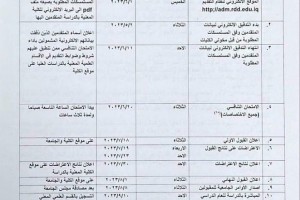
The College of Science at the University of Basrah organized a seminar entitled (The role of Escherichia coli in diabetic foot infection.) by the graduate student Zainab Mohammad Hussain.... The study aims Isolation and diagnosis of E. coli from inpatients and outpatients suffering from diabetic foot ulceration using conventional diagnostic methods. Identification of the virulence factors for E. coli. Examined the antibiotic susceptibility test of E. coli Serology diagnosis of E. coli Molecular diagnosis (PCR) method to confirm E. coli pathogenic strains. and included: Detection of the enter hemorrhagic strainO157:H7 using medium HI Chromogenic agar and by using serotyping. The study revealed new species and genera belonging to the family Enterobacteriaceae. Stutzerimonas stutzeri, Enterobacter hormaechei, Lelliottia amnigena and the study was recommended.: The study suggests do other studies of the strains belonging to EHEC such as: O157:H11, O104:H4.
The study recommends studying many types of bacteria belonging to the family Enterobacteriaceae to discover other new strains and species in the diabetic foot.
This study recommends health institutions provide special kits for detection of E. coli strains to identify the virulence factors and trying to control. This study recommends reducing of phenomenon intake of medicines, especially when suffering from mild diseases such as the common cold, because Drug resistance has become a global problem and has greatly affected patients with diabetic foot.


.jpeg)
.jpeg)



